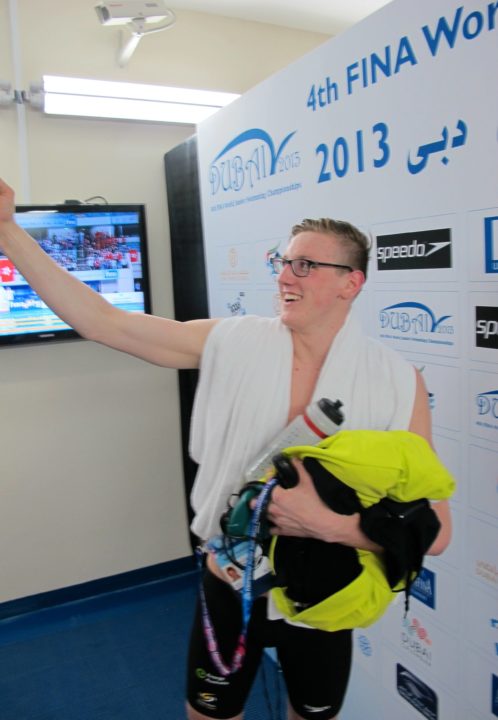Australia entered the day in the top spot of the medal standings leading both the Americans and the Russians by two gold medals having collected nine. They needed that lead as both the Russians and Americans collected two gold whereas the Aussies only collected one. In the end the Australians held on to win the medal standings while the Russians tied the Americans in the number of gold, but finished ahead of them in the standings earning one more silver.
The top five are as follows:
|
2013 |
Gold |
Silver |
Bronze |
Total |
|
Australia |
10 |
6 |
2 |
18 |
|
Russia |
9 |
8 |
9 |
26 |
|
USA |
9 |
7 |
12 |
28 |
|
Lithuania |
4 |
3 |
0 |
7 |
|
Japan |
2 |
3 |
5 |
10 |
Compared to the 2011 standings both the Australians and Russians (0 gold, 1 silver and 4 bronze) made significant improvements while both the Canadians and Ukrainians failed to make the top five:
|
2011 |
Gold |
Silver |
Bronze |
Total |
|
USA |
11 |
8 |
3 |
22 |
|
Japan |
7 |
9 |
3 |
19 |
|
Canada |
4 |
5 |
5 |
14 |
|
Australia |
4 |
1 |
3 |
8 |
|
Ukraine |
4 |
1 |
2 |
7 |
The point totals looked a bit different as the Americans won by a substantial margin followed by the Australians and Russians who had a tight race for third:
Combined:
- USA – 989
- Australia – 770
- Russia – 740.5
- Canada – 471.5
- Japan – 445.5
Men’s point totals:
- USA – 410
- Russia – 358.5
- Australia – 332
- Japan – 268
- Poland – 224
Women’s point totals:
- USA – 517
- Australia – 374
- Russia – 316
- Canada – 258.5
- Italy – 210.5

I think the championships points should be change, from 18-16-15-14-13-12-11-10 that only give 8 points more to the Junior World Champion than to the last finalist, an insult i would say.
I think it should give more rewards to the Champion, like MotoGP racing, when you give 25-20-16-13-11-10-9-8 points to the #1 until #8. Then we can change from medals table to points table.
This is the first time Australia topped world swimming medal table since 2001 Fukuoka, where Australia collected 13 golds, half of it due to Thorpe.
Misleading title, U.S. won the overall combined medal standings, (which is more closely related to the overall points which they won). Australia only won the # of gold medals. Also men’s and women’s medals should be separated as the points are. I think Horton won 6 of the golds for AUS. I don’t like that men’s and women’s medals and points are combined at all, they are two different teams in my mind.
The measure of success at these events has always been generally accepted as the number of total gold medals. Are they the most accurate measure of overall strength? Debatable, but Swimswam are just following the standard. The winner of the medal table has traditionally been the nation with the most gold medals, so the title is not really misleading. The only people I’ve seen debate this are usually people who have been disadvantaged by it. I’m going to go out on a limb and guess that you’re an American?
And why should men’s and women’s results be separated? Again, no other event does that, and unlike your other argument I can’t see any sense in this one. These swimmers are… Read more »
Finland will always be situated somewhere quite low at the standings, no matter how the table is built up, so maybe I dare to look this a bit differently. :).
In the end one’s stance on this depends on the definition of success. For me having a swimmer in a final is an achievement. Being on a podium is a very good result. But if one tends to think that getting silver is losing, then the gold medal tally is a valid way to measure success.
So I’ve nothing against how countries are placed in order in the medal table. It’s just about how to evaluate success. In my opinion the number of golds isn’t a best possible yardstick available.
I predict Lithuania will have a hard time repeating its gold medal tally in 2015.
If there still was a Soviet Union that would be some dominance of results in score.